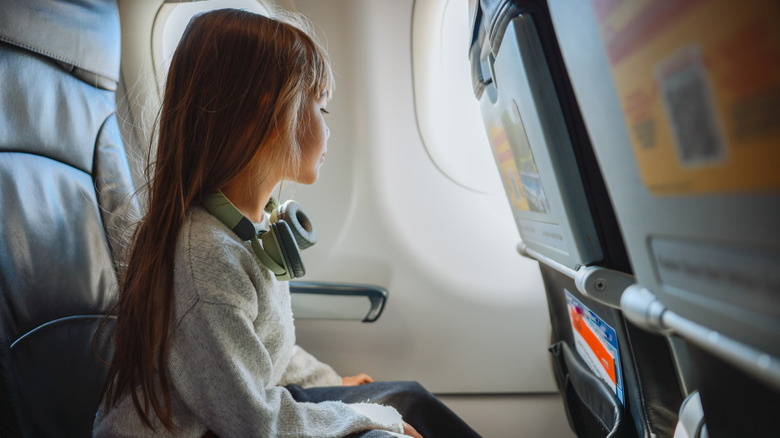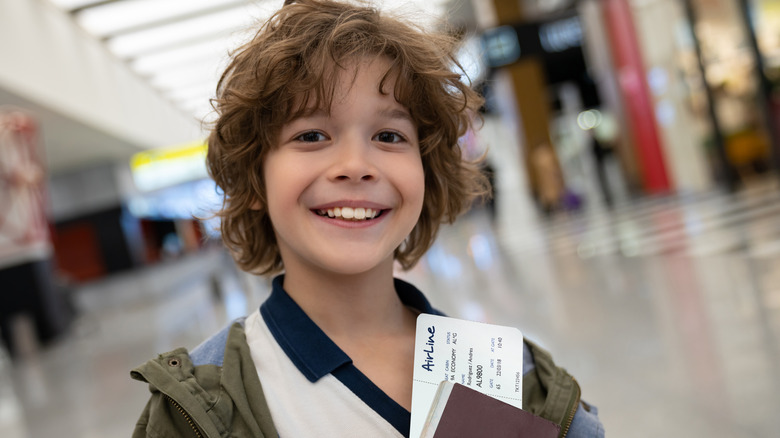What Families Must Know About TSA's Reminder Regarding Children Going Through TSA PreCheck Alone
Going through airport security is never the most enjoyable part of your vacation — nor should it be. However, there are ways to make it less stressful or time-consuming, such as avoiding the strange triggers that cause secondary screenings by the Transportation Security Administration. Lately, TSA has been working to make the process easier for families, including launching a campaign aimed at making flying with kids less painful.
Enrolling in the TSA PreCheck program can also save travelers significant time and stress, with average airport security wait times around 10 minutes for members. But there's one thing enrolled parents often forget, prompting a reminder from TSA that help ensure any children younger than 18 traveling alone don't get delayed unnecessarily at airport security. In a Facebook post, the agency noted: "Unaccompanied minors who are eligible for TSA PreCheck will need to show an acceptable form of ID to receive expedited screening."
Typically, if you're enrolled in TSA PreCheck and traveling with your child within the U.S., your child doesn't need to show ID. As the parent or legal guardian, you'll need to have your own ID ready. Without valid ID, you may have to go through a lengthy identity verification process with a TSA officer. Additional security screening may also be required. All of this can slow you down, effectively negating the main benefits of being a TSA PreCheck member.
What minors need if traveling alone
If your child is under the age of 18 and flying alone, you'll need to ensure they have TSA-accepted identification before arriving at the airport. Among the accepted forms of ID, TSA allows U.S. passports and permanent residence cards, state-issued enhanced driver's Licenses, DHS Trusted Traveler cards, border crossing cards, and driver's licenses or photo ID cards that are REAL ID-compliant. If their driver's license or state-issued ID doesn't have a star or bear symbol at the top, it won't be considered REAL ID-compliant and won't be valid for domestic air travel.
That said, the list of TSA-accepted IDs can change without much notice. Airlines may also have specific ID requirements for minors traveling alone that aren't reflected in the TSA guidelines. As a precaution, the TSA recommends contacting the airline to double-check ID requirements before your child is due to fly. If your child's ID has expired recently, they may still be able to use it, as TSA allows expired identification if it's been less than two years since expiry.
It can be a pain having to remember yet another thing for your child's flight, but helping them get in the habit of carrying ID can be useful once they turn 18 and are required to present it every time they fly. If your child frequently travels alone, enrolling them in the TSA PreCheck program could save them time and hassle. They'll receive their own Known Traveler Number, making solo travel much smoother. You may also want to consider the pros and cons of other Trusted Traveler Programs, such as Global Entry versus TSA PreCheck, and enroll them or yourself in one of those instead.

